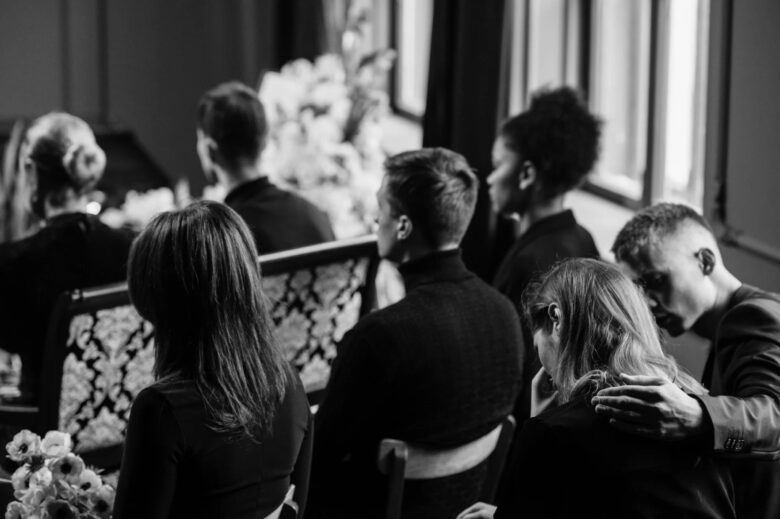Funeral planning is a fact of life, even though it’s never going to be easy. There are many ways people seek to ease the passing of a loved one, and one modern funeral style that brings comfort for many is creating a send-off that reflects the true life and personality of the deceased, known as a Personal Funeral Service. This personalisation of arrangements is often handled by the individual ahead of time if they have something specific in mind or they want to make things easier for their family. But equally, it’s a favoured arrangement type for those who knew that person best and can be arranged after the passing. Either way, this funeral type is gaining immense popularity as adding personal touches and individuality adds authenticity and can help those attending through the grieving process. We’ve added some points below to help you get started planning a Personal Funeral.
Contents
Keep It Unique
A Personal Funeral is simple, really – it focuses on ensuring proceedings are unique and specific to the deceased individual and how they would want to be remembered. There is a myriad of aspects that made up the person you loved including their likes and loves, passions, and inner life. These can be given pride of place on the day of the funeral to personalise the event. These may include:
- Holding the funeral at a significant time of day for your loved one.
- Select a venue with a special place – perhaps a club, garden, home, or beach where it is easy to remember them.
- Choose a theme for guest attire that shows off a favourite colour or style.
- Have a life display such as photos, personal effects, memorabilia, or a video of their life story.
- Showcase people and places that were important to them.
- Play their favourite music.
- Create unique mementoes for guests to take as a memorial.
- A personalised coffin or urn with decorations by loved ones or from their art.
- Choose a celebrant that affirms their view on life, sense of humour, or quirks.
- Hold a party to celebrate them in a way that they would love.

Source: canva.com
Choose What’s Important
Are traditions and certain formalities important? While some people prefer to avoid traditions altogether, for others, traditions are vital for proceedings. A Personal Funeral isn’t about excluding traditions; it is simply an opportunity to make a funeral as unique, wacky or traditional as the departed individual. That’s all that matters when you want to hold a meaningful funeral that will remember every aspect of your loved one.
Select a Personal Funeral Director
The best funeral director will facilitate the creation of an event that will be memorable for those attending while appropriately commemorating your departed loved one. A good director will offer support, guidance, and compassion while ensuring this difficult time supports the family and their individual choices for a send-off. Be sure that any funerary team you choose is trained and experienced to provide personalised planning to help relieve your burden.

Source: canva.com
Deciding on the Type of Service
Deciding on the type of service you want when planning a personal funeral requires careful thought and consideration. The options in the UK can range from traditional religious ceremonies to more modern and individualised approaches.
Religious services are still incredibly popular amongst those who consider themselves to be religious, and most churches will allow for appropriate readings or music to be chosen by the family of the deceased in order to personalise it even further. Other types of religious service include Non-conformist services, Humanist services or civil partnerships, depending on one’s beliefs.
For those who wish for a less traditional service, bespoke funerals have become increasingly popular. Crematoriums are able to provide additional facilities such as separate rooms for celebration before and after the main ceremony as well as access to audio equipment in order to create more meaningful and memorable services that better reflect the identity of individuals. Additional possibilities such woodland burials, eco-friendly burials or memorial gardens are becoming increasingly available too.
It is helpful for those planning a personal funeral to talk about their wishes with their family members who will be making arrangements prior to death if possible, in order to make sure that all decisions fit with one’s wishes upon reflection. Alternatively, Pre-paid Funeral plans are available which help with breaking down costs relatively far into the future through fixed payments over long terms so that cost does not become an issue during difficult times either financially or emotionally.
Planning the Order of Service
Deciding on the structure and content of a personalised funeral service can feel like a daunting task, especially at such an emotionally difficult time. The good news is that planning the order of service doesn’t have to be an overly complicated process or one that requires huge amounts of work. A few simple steps can make all the difference when it comes to creating an intimate and meaningful event for those close to you.
The order of service usually follows a traditional format and usually consists of:
- Opening Words – For example, ‘Let us lift our hearts in thankfulness’
- Acknowledgements – These could include acknowledgements from close family members or friends.
- Reading/s – This could include religious readings such as bible passages, or poetry readings from a beloved poet.
- Tributes/s – These should come from close family members or friends, sharing stories about the deceased’s life.
- Committal – This is where the coffin is committed to its final resting place and ashes are interred into the ground (if applicable).
- Ending Words – This could be a prayer or poem read by one of those close to you who knew the deceased well, culminating in an appropriate song played as everyone leaves.

Source: canva.com
Finalising the Arrangements
It is worth noting that even though you may be able to plan all of the details relating to your funeral service, you may need help from someone else in order to make them happen. Consider asking family, friends or professionals for help. Additionally, consider taking time to write down your wishes for each aspect of the ceremony: this will ensure everything runs smoothly on the day.
